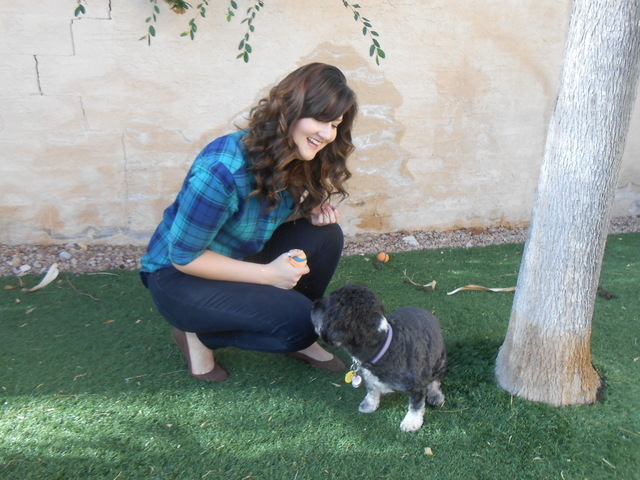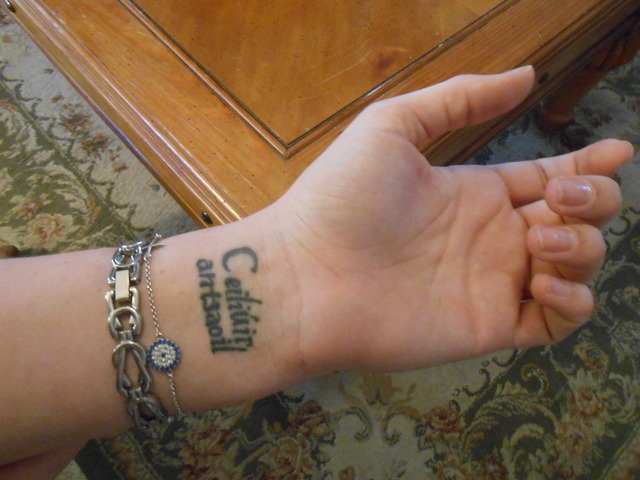Healing her heart: Genetic condition had 17-year-old getting a pacemaker



Kat Doyle’s early life was filled with dancing and school activities, all the normal stuff of childhood, until the day she went to the doctor for pink eye at 17. The nurse practitioner who saw her noticed that Doyle had a heart murmur and ran an EKG.
Doyle, who’d experienced moments of lightheadedness and heart arrhythmia, later underwent open heart surgery and ended up having a pacemaker placed in her chest, something she’d been forewarned might be necessary.
“It was one of those gambles, like, ‘You may die in the next month or you may not.’ I was a dancer, in theater, and I was like, ‘I’m not going to wake up with a defibrillator. This is crazy.’ I woke up (and learned one was embedded), and I just sobbed,” she said.
Doyle’s condition, hypertrophic cardiomyopathy, is a thickening of the heart muscle. The thickening can make it difficult for blood to leave the heart, forcing the muscle to work harder to pump it out. The condition can cause sudden death in athletes. It is hereditary. According to the National Center for Biotechnology Information, roughly half a million people in the U.S. have hypertrophic cardiomyopathy. Doyle’s father, John, was one.
He had no symptoms until one day when he was cycling in Red Rock Canyon with a friend and slumped over, dead. He was 55.
“I was heartbroken … I was in shock,” said Doyle, now 27 and a northwest Las Vegas resident. “I had talked to him the day before, and he was completely fine.”
Katie Houghton met Doyle when both were in the theater program at Las Vegas Academy, 315 S. Seventh St.
“I remember a few long days of rehearsal and having her pass out twice in one day, which was terrifying and made her limitations tangible in a way I’ve never experienced before,” Houghton said.
A year after her father’s death was when Doyle got pink eye and learned she had the same heart condition. Her two older brothers do not have it.
Recovery from the surgery was difficult. At one point, she was taking 15 pills a day, and her blood pressure dropped to 75 over 50.
“I was so weak, I couldn’t even lift the TV remote … I kept passing out,” she said.
Back then, pacemaker batteries lasted about five years. She was warned that when it was time for a new one, she’d know it. Sure enough, in 2010, Doyle was out having breakfast with Houghton when that time came.
“It felt like a horse kicking me in the chest,” she said. “I got shocked with 1,200 volts of electricity in three minutes. It left my whole left side sore.”
Doyle’s new battery is good for about another five years.
Now, she’s a poster person for heart walks and other events. Doyle said she lives by the creed, “be kind, for everyone you meet is fighting a hard battle.” She’s adjusted to life with a defibrillator that has pace-making abilities: no holding her cellphone with her left hand; staying clear of magnets; only being patted down at airport security.
According to the American Heart Association, cardiovascular diseases and stroke are the nation’s No. 1 and No. 4 killers and Nevada’s No. 1 and No. 5 killers. My Heart. My Life. is a national movement designed to get everyone to embrace a healthier lifestyle in order to improve cardiovascular health. For more information, visit lasvegasheartwalk.org.
Contact Summerlin Area View reporter Jan Hogan at jhogan@viewnews.com or 702-387-2949.


















